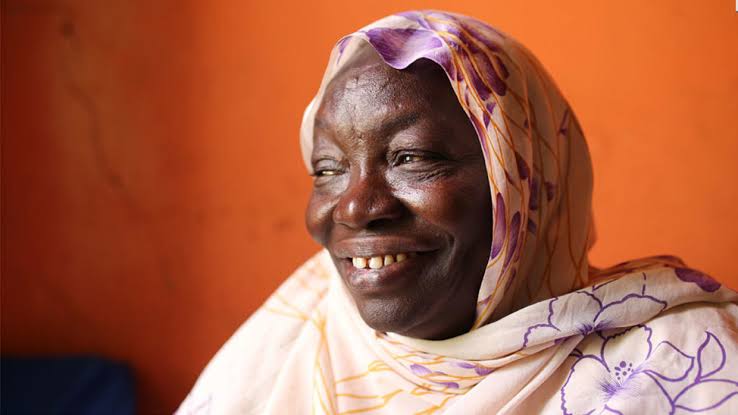Women vendors protest ‘renewed wave’ of police violence in Sudanese capital
Protests against renewed police campaigns against women tea and food sellers took place in front of the offices of the United Nations High Commissioner for Human Rights (UNHCR) in Khartoum on Monday.
 Awadiya Kuku, a tea seller and chairperson of the All Professions Cooperative Association (Photo: Social media)
Awadiya Kuku, a tea seller and chairperson of the All Professions Cooperative Association (Photo: Social media)
Protests against renewed police campaigns against women tea and food sellers took place in front of the offices of the United Nations High Commissioner for Human Rights (UNHCR) in Khartoum on Monday.
Women tea and food sellers were violently confronted by the police, who confiscated their equipment during the protest without checking their permits.
“After five years of silence, a wave of violent policing is happening again,” Awadiya Kuku, chairperson of the All Professions Cooperative Association, told Radio Dabanga on Monday.
The participants of the vigil handed a memorandum to the UN Commissioner’s office, “calling for an immediate halt to police violence against women vendors in the informal sector and for police officers involved to be brought to trial,” said Kuku.
A group of tea sellers have also been protesting for nine days at the Green Square south of the international airport in Khartoum, she said, against the violent confiscation of their equipment by police forces.
In regards to the confiscated equipment, Kuku said that the women addressed the governor of Khartoum through the media. “The governor promised that the equipment would be returned nine days ago, but nothing happened.” Kuku appealed to “charities and volunteers to provide the women with what they need.”
In the memorandum, the women also call for the inclusion of informal sector workers in Sudanese Labour Law, protection for women vendors through cards that preserve their rights, allocation of suitable workplaces for women workers, and integrated social and health support. Reportedly, more than 70 per cent of the Sudanese workforce are informal sector workers.
“Many women are the only breadwinners for families that include people who are sick or have special needs,” she explained. “In addition, because of the high school fees, many women cannot afford to send their children to school anymore. They really need the daily income they earn by selling tea, coffee, and food on the streets.”
Improvement of educational conditions of children of women vendors and other informal workers was also demanded. The memorandum also called on civil society organisations to contribute to alleviating poverty and destitution among informal sector workers through development programmes.
The women also demand the involvement of women workers in the ongoing political process at the grassroots levels of government and local councils. Awatif Abdelrahman, chair of the Darfur Displaced Women, stressed to Radio Dabanga last week the need to reach a comprehensive political agreement that does not exclude any political party, rebel movement, displaced, or refugees.
They noted the need for Sudanese state institutions to respect the rights of women stipulated in international conventions. The Convention on the Elimination of all Forms of Discrimination Against Women (CEDAW) is an international treaty adopted in 1979 by the UN General Assembly. Described as an international bill of rights for women, it was instituted on 3 September 1981 and has been ratified by 189 states.
On March 29, 2016, Kuku was awarded the 2016 Secretary of State’s International Women of Courage Award. This honour recognises women around the globe who have demonstrated exceptional courage and leadership in advocating for peace, justice, human rights, gender equality, and women’s empowerment.
Kuku became a roadside tea seller when her family moved to Khartoum and has since been involved in promoting economic opportunities for women working in the informal sector.
On Sunday, 69 women and human rights groups organised a sit-in in front of the offices of the UNCHR in Khartoum to condemn the recent violence in Wad El Mahi in Blue Nile region and Lagawa in West Kordofan. A group of young women organised a march in Khartoum on July 6, 2022, condemning the harassment women are subjected to both in public and private life. They carried yellow banners protesting the prevailing patriarchal order and the “guardianship by men”. They chanted slogans calling for women's rights, and “Bread, Freedom, and Intersectional Justice”.











 and then
and then